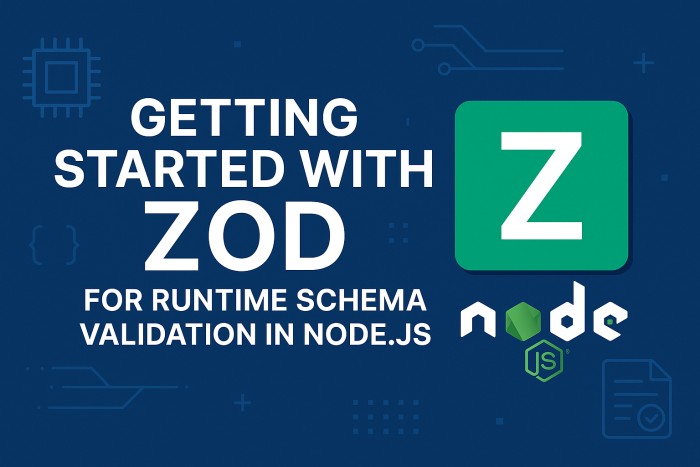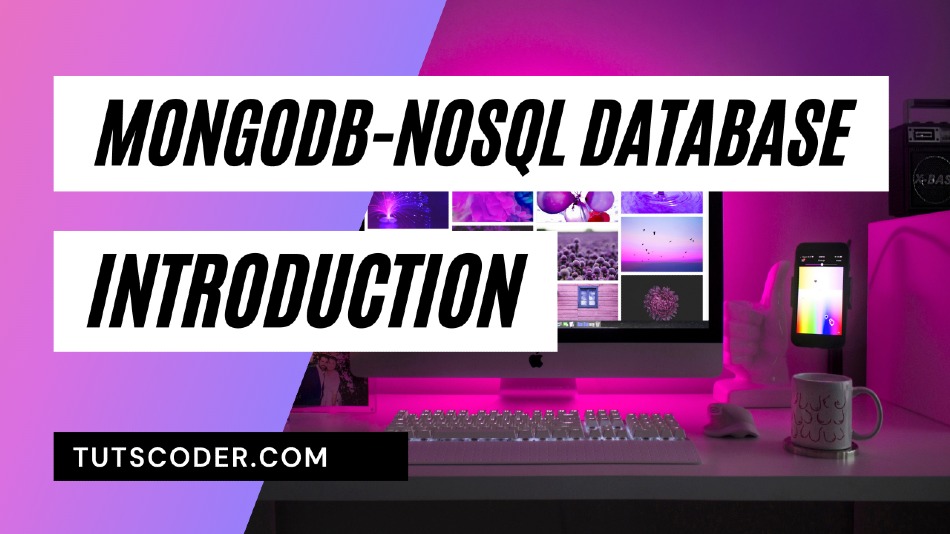Data validation is the backbone of robust Node.js applications. Whether you're building REST APIs, handling user input, or processing external data, ensuring data integrity is crucial for application security and reliability. Enter Zod - a TypeScript-first schema validation library that's revolutionizing how developers handle runtime type checking in Node.js applications.
In this comprehensive guide, we'll explore how to implement Zod for runtime schema validation in Node.js, complete with real-world examples, best practices, and practical implementation strategies that you can apply immediately to your projects.
What is Zod and Why Use It?
Zod is a TypeScript-first schema validation library that provides runtime type checking with zero dependencies. Unlike traditional validation libraries, Zod offers:
- Type Safety: Automatic TypeScript type inference
- Runtime Validation: Catches errors during execution
- Zero Dependencies: Lightweight and fast
- Intuitive API: Easy to learn and implement
- Comprehensive Error Messages: Detailed validation feedback
Why Choose Zod Over Other Validation Libraries?
Traditional validation approaches often require separate type definitions and validation schemas. Zod eliminates this duplication by generating TypeScript types directly from your validation schemas, ensuring your types and validation logic stay in sync.
Setting Up Zod in Your Node.js Project
Let's start by installing Zod and setting up our development environment:
# Install Zod
npm install zod
# For TypeScript projects (recommended)
npm install -D typescript @types/nodeBasic Project Structure
my-node-app/
├── src/
│ ├── schemas/
│ │ └── user.schema.ts
│ ├── controllers/
│ │ └── user.controller.ts
│ ├── middleware/
│ │ └── validation.middleware.ts
│ └── app.ts
├── package.json
└── tsconfig.jsonBasic Schema Validation Examples
Let's explore fundamental Zod schema validation patterns:
String Validation
import { z } from 'zod';
// Basic string schema
const emailSchema = z.string().email();
const passwordSchema = z.string().min(8).max(100);
// Usage
try {
const email = emailSchema.parse("user@example.com");
const password = passwordSchema.parse("securePassword123");
console.log("Valid data:", { email, password });
} catch (error) {
console.error("Validation error:", error.errors);
}Object Schema Validation
// User registration schema
const userRegistrationSchema = z.object({
username: z.string().min(3).max(20),
email: z.string().email(),
password: z.string().min(8).regex(/^(?=.*[a-z])(?=.*[A-Z])(?=.*\d)/),
age: z.number().min(18).max(120),
terms: z.boolean().refine(val => val === true, {
message: "You must accept the terms and conditions"
})
});
// Type inference
type UserRegistration = z.infer<typeof userRegistrationSchema>;Array and Nested Object Validation
const addressSchema = z.object({
street: z.string().min(1),
city: z.string().min(1),
zipCode: z.string().regex(/^\d{5}(-\d{4})?$/),
country: z.string().min(2).max(2)
});
const userProfileSchema = z.object({
personalInfo: userRegistrationSchema,
addresses: z.array(addressSchema).min(1).max(3),
preferences: z.object({
newsletter: z.boolean(),
notifications: z.array(z.enum(["email", "sms", "push"]))
})
});Related Node.js Resources
To deepen your Node.js expertise, explore these comprehensive guides from our blog:
- Getting Started With Node.js: A Beginner's Guide - Perfect for developers new to Node.js ecosystem
- Understanding Node.js Modules - Node Beginner's Guide - Master the module system that powers Node.js applications
- Error Handling in Node.js: Part-1 - Learn robust error handling strategies that complement Zod validation
- Node.js Security Best Practices: A Developer Guide - Essential security practices when handling validated data
- Top 5 Most Useful Node.js Built-in Modules - Leverage Node.js core modules alongside Zod
For Express.js integration patterns, check out:
- Hello World in Node.js with Express Framework - Build your first Express app with proper validation
- Deploy Your Node.js Application on AWS EC2 Server Like a Pro - Production deployment strategies
Frequently Asked Questions
Q: How does Zod compare to Joi for Node.js validation?
A: Zod offers several advantages over Joi:
- TypeScript-first design with automatic type inference
- Zero dependencies resulting in smaller bundle size
- Better tree-shaking support for frontend applications
- More intuitive API with method chaining
- Built-in async validation support
However, Joi has a larger ecosystem and more extensive documentation due to its longer presence in the market.
Q: What's the performance impact of using Zod in production?
A: Zod is highly optimized for performance:
- Minimal overhead for simple validations
- Efficient parsing with early exit on errors
- Tree-shakable - only include schemas you use
- Benchmarks show comparable or better performance than alternatives
For high-throughput applications, consider:
- Caching compiled schemas
- Using safeParse() for non-critical validations
- Implementing validation only on data ingress points
Ready to implement bulletproof validation in your Node.js applications? Start with the examples above and gradually introduce more complex validation patterns. Remember, good validation is not just about preventing errors—it's about creating better user experiences and more maintainable code.
For more advanced Node.js tutorials and development insights, explore our complete Node.js guide collection and don't hesitate to reach out for professional development assistance!







Leave a Comment
Share Your Thoughts